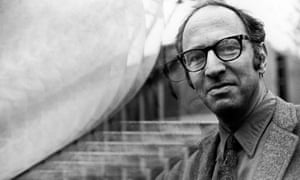Forty-five years ago, the inventor of the term “paradigm shift” threw an ashtray in exasperation at a young graduate student in the philosophy of science, and soon afterwards ejected him from Princeton. The ashtray hurler was Thomas Kuhn, and his student grew up to become the documentary film-maker Errol Morris, who has – perhaps understandably – harboured a grudge ever since. This book is his long-brewed revenge.
Morris explains early on that he is worried about post-truth, fake news, the Trump administration’s invocation of “alternative facts”, and so forth, and hopes his book will serve as an “antidote”. But what exactly makes Kuhn a proto-Trumpian?
In his seminal work The Structure of Scientific Revolutions (1962), he argued that science proceeds in two modes. “Normal” science consists of “puzzle-solving”, finding answers to questions that remain within a certain overarching theory, or “paradigm”. But at certain points, anomalies pile up and a revolution occurs, replacing the previous theory or paradigm with a new one, as when Newtonian mechanics was overthrown by Einsteinian relativity. That is a paradigm shift. And, according to Kuhn, it’s usually messier and less objective than people had previously assumed. In particular, he argued, the criterion for the acceptance of a new paradigm is not some kind of provably superior fidelity to objective truth, but simply its consensus adoption by the community of human beings engaged in scientific practice.
This is all terribly dangerous, Morris says: “Kuhn’s ideas promote a denial of truth,” and if we can’t rely on objective truth in science then we may as well all become White House spokespeople. (I am paraphrasing slightly.) His aim, then, is to refute this “postmodernist bible”. To do so, somewhat eccentrically, he spends a lot of time on the picture of language advanced in the 1960s by the philosopher Saul Kripke, because he takes this to imply that the meaning of words is fundamentally connected to reality in a reliable way, so that scientific language, too, can point to the world unproblematically. There are also some entertaining interviews, laid out documentary-script-wise, with such luminaries as Noam Chomsky, the philosopher Hilary Putnam and Kripke himself, and Morris races off on tangents about Jorge Luis Borges, Pythagorean mathematics and armadillos, and down some deep Wittgensteinian rabbit holes (or duck-rabbit holes) about rules and language.

Photograph: Bill Pierce/Time & Life Pictures/Getty Image
There’s a really big problem with Morris’s account, and it’s right there in his book’s subtitle: Kuhn did not, in fact, “deny reality”. He simply insisted that we could ultimately never know the fundamental truth about reality, but we could, he thought, make ever more useful predictions about it with scientific theories. This is clear enough even in many of the passages Morris himself angrily cites, as when he quotes Kuhn writing (in 1989) about “the natural sciences, dealing objectively with the real world (as they do)”, or, at the end of The Structure of Scientific Revolutions itself, where Kuhn writes of the evolution of science as “an increasingly detailed and refined understanding of nature”. That doesn’t sound like a postmodernist supervillain denying reality, does it? No, because it isn’t.
Morris is also upset about Kuhn’s notorious concept of “incommensurability”. According to Kuhn, competing scientific paradigms are “incommensurable” in that they slice up the world into different sets of incompatible phenomena, but this doesn’t mean, as Morris thinks, that he is saying they can’t be rationally compared at all. In Kuhn’s picture, when assessing theories, the community of scientists decides not that a new paradigm is “true” in that it accurately reflects fundamental reality, but simply that it explains a wider collection of experimental findings than the old one. This was the explicit view of many of the pioneering quantum physicists, who thought that to ask what the mathematics implied about the nature of reality itself was silly. As Chomsky tells Morris, evidently to the latter’s disappointment, it is perfectly respectable to hold the following view: “The world is indeed incomprehensible, it’s a mystery, but we can at least construct intelligible theories.”
In Morris’s partial defence, more scholarly critics have long taken Kuhn to task for seeming to be vague about his central terms and using them in apparently different senses in different places. But this book’s central and rather hysterically repeated accusation, that Kuhn thought reality didn’t exist and science was merely a social power game, is just plain wrong. Whenever something sounds a bit relativist, Morris pounces on it and reads it as though it is saying the most ridiculous thing possible: the principle of interpretive charity is here everywhere absent. It’s a particular shame, since in his films about Robert McNamara or Donald Rumsfeld, Morris beautifully withholds authorial judgment in order to allow the subjects to damn themselves. In this book, though, he does the opposite, going on a flamethrower rampage from the start in an attempt to reduce everything to smouldering ash. The cause of truth is not thereby advanced.
To buy The Ashtray go to guardianbookshop.com.